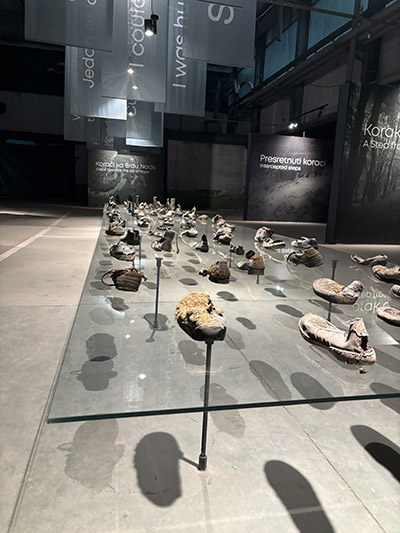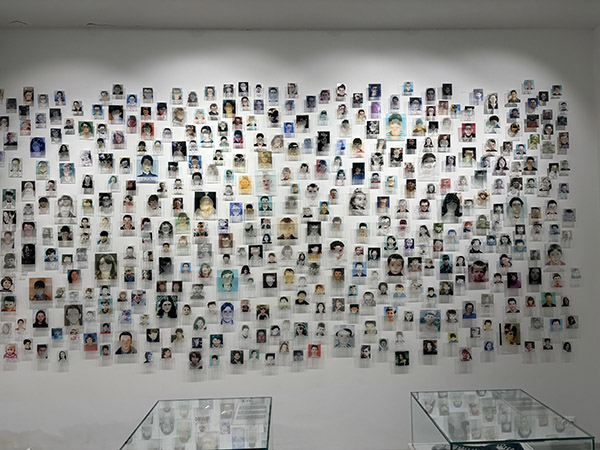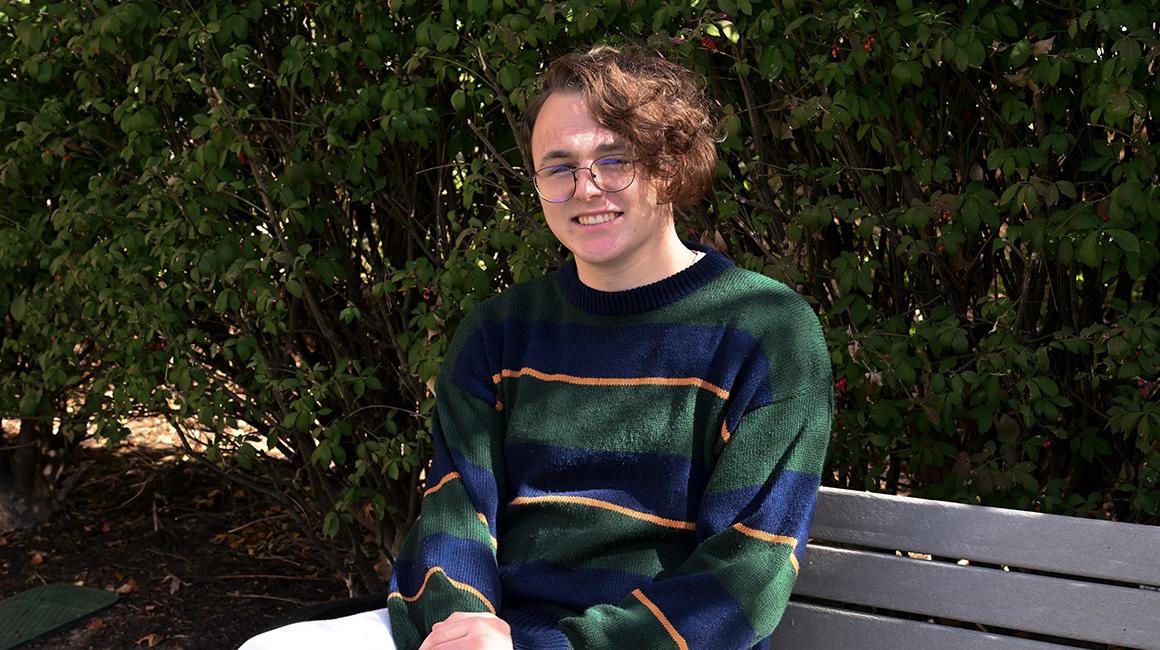Jackson Cant isn’t afraid to travel far from home or explore unfamiliar topics. He knows that knowledge and outreach can assist neighbors in need and shape how the world responds to global crises.
In summer 2024, the senior political science major, Honors College student and future law student traveled to Pristina, Kosovo, as an
Honors College Endowed Fellow. There, he visited sites of historical significance and studied the aftermath of
the Kosovo War.
The armed conflict lasted from February 1998 until June 1999 and was fought between
the forces of the Federal Republic of Yugoslavia, which controlled Kosovo before the
war, and the Kosovo Albanian separatist militia known as the Kosovo Liberation Army.
The United States became involved in the conflict in March 1999 with the launch of
the NATO-led Kosovo Air Campaign.
A horizon-expanding education
With a good sense of the impact he wants to make on the world, the fellowship added
depth, discipline and a greater sense of purpose to Jackson’s aspirations and connected
him with life-changing experiences.
Jackson attended classes at an American university’s branch campus in Kosovo taught
by professors who were from the region or involved in the war.

The opportunity to learn from those directly involved in the conflict brought a powerful
perspective and offered a firsthand look at the thoughts and emotions of the time.
It also moved students to a new and clearer vantage point—both in terms of their studies
and the world at large.
“I had a professor who testified before Congress trying to get the U.S. involved in
Kosovo,” said Jackson. “I also learned from Sir Geoffrey Nice, the head international
prosecutor who prosecuted Milosevic, then-President of the Federal Republic of Yugoslavia,
in International Court.”
Outside the classroom, Jackson’s program connected him with valuable internship opportunities,
and he worked with an organization that created exhibits to honor and commemorate
those lost in the war called “Once Upon a Time and Never Again.”
By visiting these exhibits, Jackson was reminded that little time has passed since
the war, and many still feel its effects daily.
Jackson also spent time working with the Humanitarian Law Center, where he shadowed
teams monitoring ongoing humanitarian rights violations to prevent future crises.

While Jackson knew “very little” about the region prior to his visit, he knew he wanted
to spend time in a place where international intervention shaped history.
“People were trying to help as people were suffering, and it is important to look
back to see if we did the right thing and learn how we can get involved and help without
causing more hurt,” said Jackson.
Knowing the importance of connecting with those he encountered on an authentic and
personal level, Jackson remained humble in his approach and valued each interaction
as an opportunity to learn. “I don't think I’ll ever forget the people we met there,”
he said. “We got to see so many people from different places and hear so many vivid
perspectives.”
Jackson also was able to learn from fellow students, including his Bosnian roommate.
“I met with his cousins who had to flee to escape the war,” said Jackson. “It was
impactful to learn history not just from the place, but from the people.”
Prepared for anything
Prior to his travels, Jackson sought mentorship from the Reverend John Sawicki C.S.Sp., Ph.D., teaching assistant professor in and director of the Center for International Relations.
“He’s so knowledgeable about world politics in general, but he taught me some things
to look out for,” said Jackson. “He wanted to make sure I was safe and knew what I
was doing.”
Jackson also appreciates mentors in the Honors College who trusted in his potential
and believed in what he was trying to accomplish. “I’m thankful for the supporters,”
said Jackson. “This wasn’t just a game of world politics; it was people’s lives and
I had to be delicate and careful about that.”
Associate Director of the Honors College and Coordinator of Student Fellowships Kevin
Henderson notes that Honors College Endowed Fellowships are ideal for students like
Jackson who are intellectually curious, academically strong and passionate about their
intended field of study.
“Jackson’s work on peacebuilding and understanding the causes of conflict is really
important,” said Kevin. “As he advances in his academic and professional journey,
he will hopefully be part of a new cohort of leaders who develop innovative global
solutions informed by historical insights.”
Though this overseas experience has ended, many lessons remain—the greatest of which
is Jackson’s desire to be knowledgeable about the world. “It’s our responsibility
to know why we do what we do and understand how we might be irrevocably impacting
people’s lives,” said Jackson.
News Information
Published
November 11, 2024


